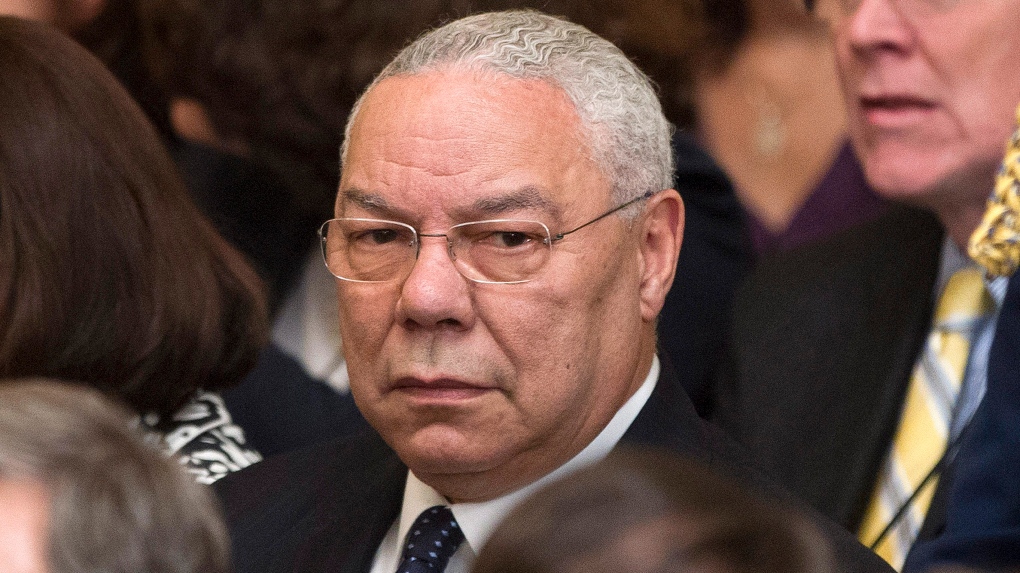Blackadder1916
Army.ca Fixture
- Reaction score
- 2,779
- Points
- 1,160
"Our strategy in going after this army is very simple. First we are going to cut it off, and then we are going to kill it."
General Powell is going to leave a mixed legacy. I prefer to think of him as a good soldier and to remember his above quote rather than his performance at the UN trying to make the case for the 2003 invasion of Iraq.

 www.nytimes.com
www.nytimes.com
General Powell is going to leave a mixed legacy. I prefer to think of him as a good soldier and to remember his above quote rather than his performance at the UN trying to make the case for the 2003 invasion of Iraq.

Colin Powell, Who Shaped U.S. National Security, Dies at 84 (Published 2021)
A former chairman of the Joint Chiefs of Staff, secretary of state and national security adviser, Mr. Powell died of complications of Covid-19, his family said.
Colin Powell, Who Shaped U.S. National Security, Dies at 84
A former chairman of the Joint Chiefs of Staff, secretary of state and national security adviser, Mr. Powell died on Monday of complications of Covid-19, his family said.
Colin L. Powell, who in four decades of public life served as the nation’s top soldier, diplomat and national security adviser, and whose speech at the United Nations in 2003 helped pave the way for the United States to go to war in Iraq, died on Monday. He was 84.
He died of complications of Covid-19, his family said in a statement, adding that he had been vaccinated and was treated at Walter Reed National Military Medical Center, in Bethesda, Md., where he died. Mr. Powell had undergone treatment for multiple myeloma, which compromised his immune system, a spokeswoman said.
Mr. Powell was a pathbreaker, serving as the country’s first Black national security adviser, chairman of the Joint Chiefs of Staff and secretary of state. Beginning with his 35 years in the Army, Mr. Powell was emblematic of the ability of minorities to use the military as a ladder of opportunity.
His was a classic American success story. Born in Harlem of Jamaican parents, Mr. Powell grew up in the South Bronx and graduated from City College of New York, joining the Army through ROTC. Starting as a young second lieutenant commissioned in the dawn of a newly desegregated Army, Mr. Powell served two decorated combat tours in Vietnam. He later was national security adviser to President Ronald Reagan at the end of the Cold War, helping negotiate arms treaties and an era of cooperation with the Soviet president, Mikhail Gorbachev.
As chairman of the Joint Chiefs, he was the architect of the invasion of Panama in 1989 and of the Persian Gulf war in 1991, which ousted Saddam Hussein from Kuwait but left him in power in Iraq. Along with then-Defense Secretary Dick Cheney, Mr. Powell reshaped the American Cold War military that stood ready at the Iron Curtain for half a century. In doing so, he stamped the Powell Doctrine on military operations — identify clear political objectives and public support, use decisive and overwhelming force to defeat enemy forces.
When briefing reporters at the Pentagon at the beginning of the gulf war, Mr. Powell succinctly summed up the military’s strategy to defeat Saddam Hussein’s army: “Our strategy in going after this army is very simple,” he said. “First, we’re going to cut it off, and then we’re going to kill it.”
. . .




